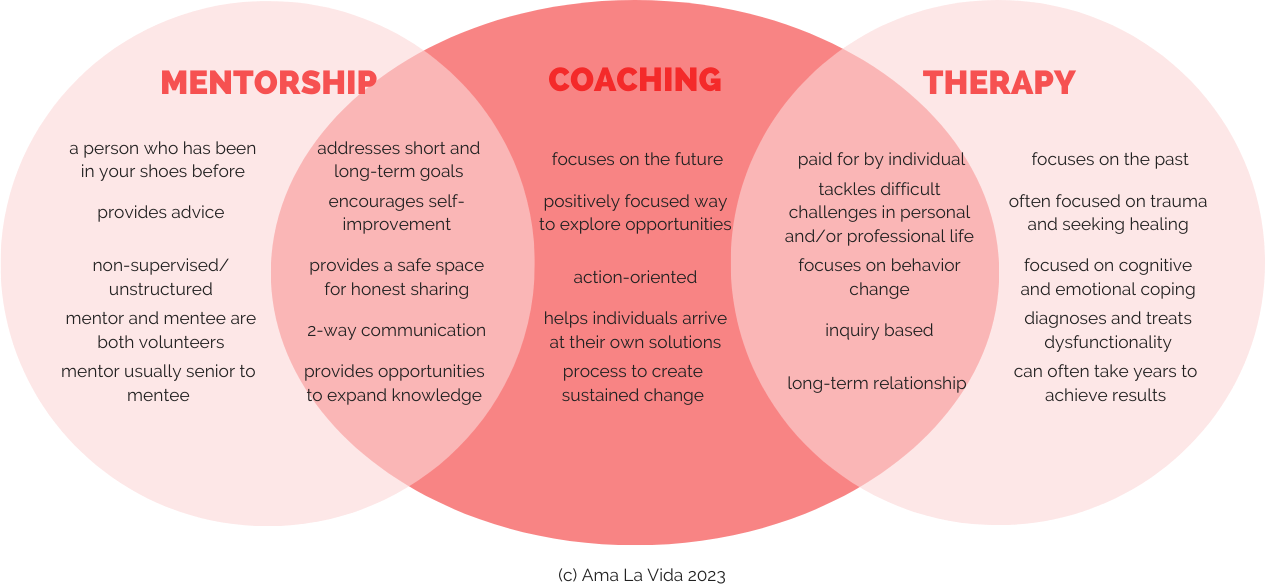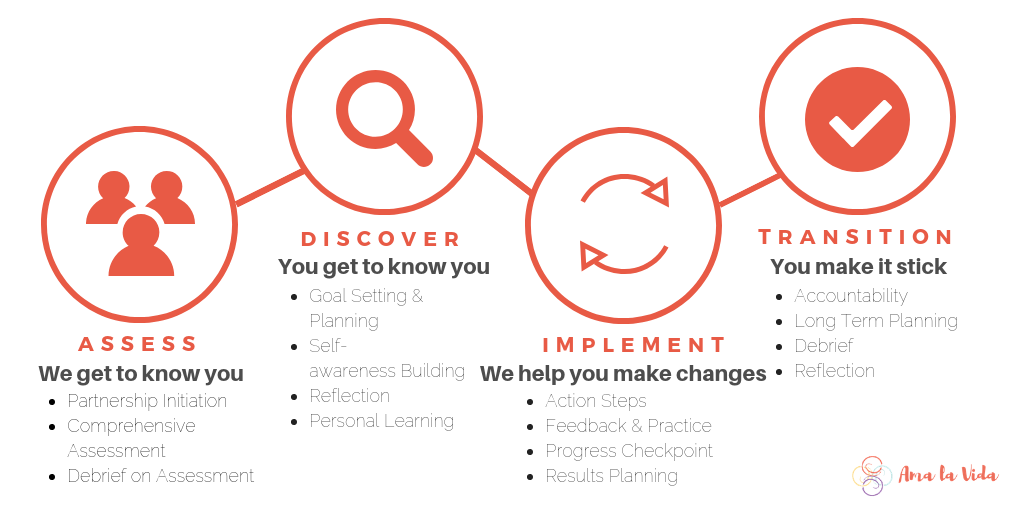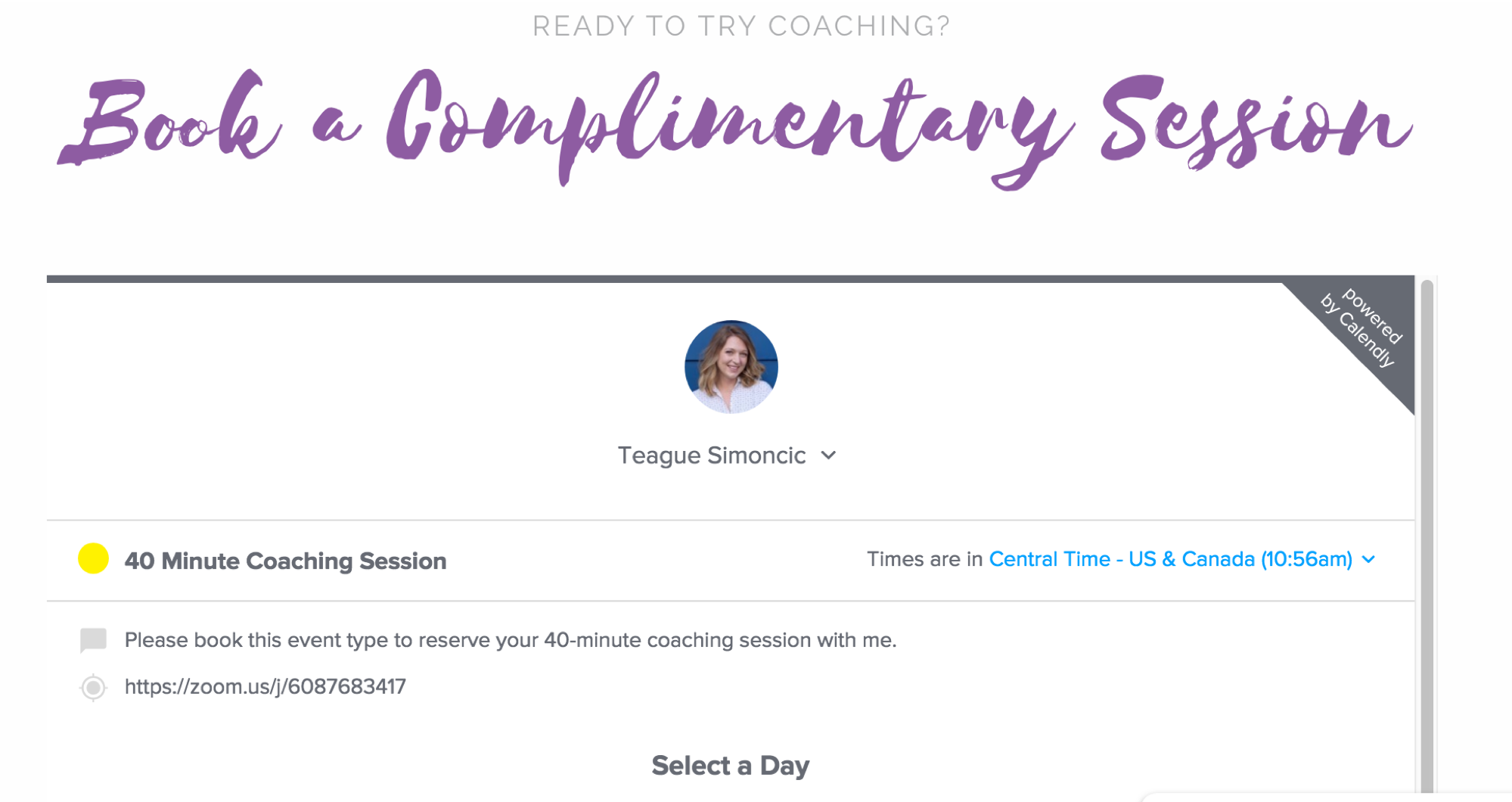What to Look for in a Career Coach
Career Discovery, Career Enrichment, Career Transitions, Get That Job
I often describe the coaching industry as the Wild West. No, we aren’t riding around on horses and hanging out in saloons, but it is unregulated, confusing and messy. Regardless of whether or not a person has been formally trained, they can call themselves a career coach. This means that as a consumer, a lot of responsibility falls on you to do your research. You want to ensure you’re investing your dollars in someone qualified who can actually support you. You’re probably wondering what to look for in a career coach?
So, when you decide to invest in yourself and hire a career coach, I want to make sure you know exactly what to look for. I will break it all down for you to ensure that you are hiring someone who is not only qualified, but also is the right fit for you and your goals.
1. Make sure a career coach is actually what you want and need.
A career coach can be a great ally to support you in many ways throughout your career. Whether you are navigating a career transition, developing as a leader, or working on collaboration, a career coach can help. Your coach will help you gain clarity, set and achieve goals, make decisions and stay accountable. However, your coach is not there to give you advice or tell you what to do. Coaching is often confused with mentorship and other related disciplines like mentorship or therapy. This graphic pinpoints some of the key differences between career coaching, mentorship and therapy so you can determine if a coach is actually the type of support you are seeking.

Therapy is oriented toward the past, helping you understand why you are the way you are. Coaching is future-oriented. Your career coach won’t spend much time digging into your past experiences. There is still certainly a self-awareness component. They want you understand who you are and why, but all with the intention of using that self-awareness for the future. “Okay, I know these things about myself. How can I create strategies and habits to help me progress toward my career goals given all I’ve learned?”
Unlike a mentor, a career coach is not there to offer guidance and advice based on his/her own experiences. Sure, they might occasionally offer a suggestion or two. For the most part, your career coach will ask powerful questions to help you find the right solutions for you. It’s important to note that none of these disciplines are any better or any worse than the others. You simply need to understand the differences and have appropriate expectations for what will be accomplished with each provider.
2. Assess their training, certification and experience.
Coaching is based on scientific research, and well-trained coaches utilize evidence-based coaching models with their clients. In order to learn this research and practice these techniques, coaches need to go through an in-depth training program.
Unlike therapy, there is very little regulation of the coaching industry. For example, to call yourself a therapist, you legally need to have certain training and hold an official credential. There is no equivalent regulation for coaches. However, there is an organization called the International Coach Federation (ICF). They accredit coach training programs and ensure they meet a certain standard. When you begin meeting with career coaches, ask them which training program they completed and if it is ICF accredited.
At Ama La Vida, we only hire coaches who have been through an intensive coach training program; once they join our team, they undergo an additional 3-months of training on our proprietary methodologies and programs.
Because coaching is about finding the right solution for each individual and not about giving advice, it is not necessarily important for your career coach to have experience working in your particular industry. It is more important that they have experience coaching people in situations like yours, so it can be helpful to ask about their prior coaching work. For example, we have coaches on our team who coach people through career transitions every day. They know where the challenges usually lie, and they are experts in the job search process. This experience is typically way more valuable than deep knowledge of a particular industry.
3. Evaluate their coaching style.
Each career coach coaches differently based on their personality and training. While all well-trained coaches provide structure and accountability, some coaches’ sessions are very organized and agenda-based while others are more open and free flowing. Some coaches tend to be more warm, energetic and supportive while others can be more confronting and really challenge you. Ask your prospective coach how they would describe their style and then think about if that is the type of support you need at this point in your life to achieve your current goals. Think about how you like to receive feedback and collaborate with others and assess if your coach can provide this style of support. Many coaches will provide this information up front somewhere on their website. You can see in our coaches’ bios a section called, “This Is My Coaching Approach.”
4. Ask about their coaching methodologies and tools.
You want your coach to utilize proven coaching methodologies and techniques to ensure your sessions will be effective in helping you achieve your goals. Additionally, you want to ensure their approach resonates with you and fits what you are looking for. Our coaches utilize a variety of tools and techniques based on the coach and the client’s needs. That being said, we have an overarching methodology which we always follow called the ADIT model: Assess, Discover, Implement, Transition. Following this model ensures a consistent customer experience for our clients and provides a framework for our engagements to make them most effective.

We also have a specific framework and approach for coaching people through career transitions (which is a particular specialty for us). We take our career transition clients through an approach to help them identify and land the right job for them:

When you are seeking a career coach to help you navigate a career transition, make sure you ask them about their methodology to ensure they have a proven structure to help you transition successfully. I also strongly encourage you to understand this if you are seeking support with your resume or LinkedIn profile or purchasing an online course. Many service providers may seem like an affordable option, but they provide a very impersonal service, and you may not even get to talk with a human being.
Additionally, we have a suite of online eCoaching tools and modules where our clients complete their work. Our clients find these online tools to be incredibly convenient and useful because they can complete them anywhere at any time, and they always have a record of them in the future. Other coaches utilize more paper-based worksheets and workbooks which may be more your style. Think about what you are looking for in terms of the coaching activities and what you’d like to have a record of later. Ask your prospective coach how they will accommodate this.
5. Figure out what it will cost.
Budget of course is an important factor in selecting your career coach. We know this can be particularly challenging if you’re currently between jobs. Coaches typically charge anywhere from $50 to $500 per hour based on their target demographic and their experience level. At Ama La Vida, we are not the cheapest option, and we are also not the most expensive option. What we pride ourselves on is delivering the most value. We supplement one-on-one coaching with modules in our powerful eCoaching platform to ensure you are getting the most bang for your buck and that you can make the most of each and every coaching session.
Ask your prospective coach what’s included in their hourly rate. Are there any additional tools and resources provided? Do they belong to a team or network which can provide support if needed or are they operating solo? Do they have a money back guarantee? Price is not always an indication of quality, but make sure you aren’t just selecting the cheapest career coach – coaches are not a commodity. Remember, this is an investment in yourself and your future, and you are worth it!
6. Do a consultation to try the relationship on for size.
Most career coaches will offer a complimentary consultation. This is a great way to determine if the coach is a good fit and if their style is a good match for what you are looking for. When you conduct your consultation, consider how safe and comfortable you feel with them. Do they make you feel at ease? Coaching provides an opportunity for you to explore and discover all of who you are, but this is only possible if you feel you are in a safe and judgment-free environment. If you don’t feel comfortable being exactly who you are with your coach, chances are they won’t be able to support you to become all that you can be. Does this career coach get you excited about the future?
Ideally you will leave your sessions feeling energized and excited. If it doesn’t feel like you are gelling, that’s okay. They may still be a great coach, just maybe not the right coach for you. No better way to explore the relationship than to try it on for size and see how it feels working with them.

7. Determine their availability.
From a tactical standpoint, is your coach available for sessions when and where it is convenient for you and when you are in a good headspace? Some coaches only work during standard business hours which can be tough if you need to schedule your sessions around your work hours. Some coaches only work in person in their offices, while others are open to phone or video sessions to ease the logistical burden.
Also discover how available your coach will be to you. Are they exclusively accessible during sessions, or will they check-in with you in between sessions? Can you send them a quick email or text with a question? What if you give them a call – will they charge you additional fees for that? At Ama La Vida, we strive to go above and beyond for all of our clients, meaning that our support doesn’t end when the coaching session does. If you want a coach that is on your side and regularly checking in, even in between your scheduled sessions, make sure this is a part of their process and philosophy.
8. Learn about their successes and results.
Feeling inspired and motivated is a wonderful feeling, but how does that translate into measurable and tangible results? Coaching is a significant investment, and you want to ensure that it provides a strong return. Ask your prospective coaches how they track and measure their results. What are their success stories with other clients? For example, we have launched a series on our blog called Transition Tales where you can read raw, unfiltered stories from our career transition clients. If you still don’t feel like you have enough information, you can ask if you can speak to one of their past or current clients to hear more about their experience.
At Ama La Vida, data and results are at the core of everything we do. We track, measure, and share your progress every step of the way. Make sure you ask the right questions about how coaching outcomes are measured and achieved.

9. Evaluate what the experience has been like so far interacting with them.
This is less of an exact science so much as a quick gut check. What a potential partner says is not as important as how they act. A critical component of coaching is accountability and organization from the coach, so take a minute to evaluate how your coach and the coaching company overall has behaved so far in your interactions with them. Did they follow-up with you in a timely manner after you reached out and after your consult? Did they provide you with any useful resources? Were they easy to get a hold of? Of course we all slip up on occasion, but typically the way someone acts during this initial exchange is a good indication of the way they will act during your future work together.
***
I believe that everyone should have a coach. Even the best athletes work with coaches to keep them on track, push them beyond their limits and help them see their blindspots. The same is true for what a great career coach can do to further your career. However, it’s extremely important to do your research and find a coach and coaching company that is the right fit for you.
I hope this information helps you to make an informed decision as you select your career coach. With a team of certified coaches throughout the US and Australia, we welcome the opportunity to speak with you and help you find the right coach for you on the Ama La Vida team.
Fill out a short form here if you are ready to be matched with your new career coach. We can’t wait to work with you and help you achieve unprecedented levels of success!


